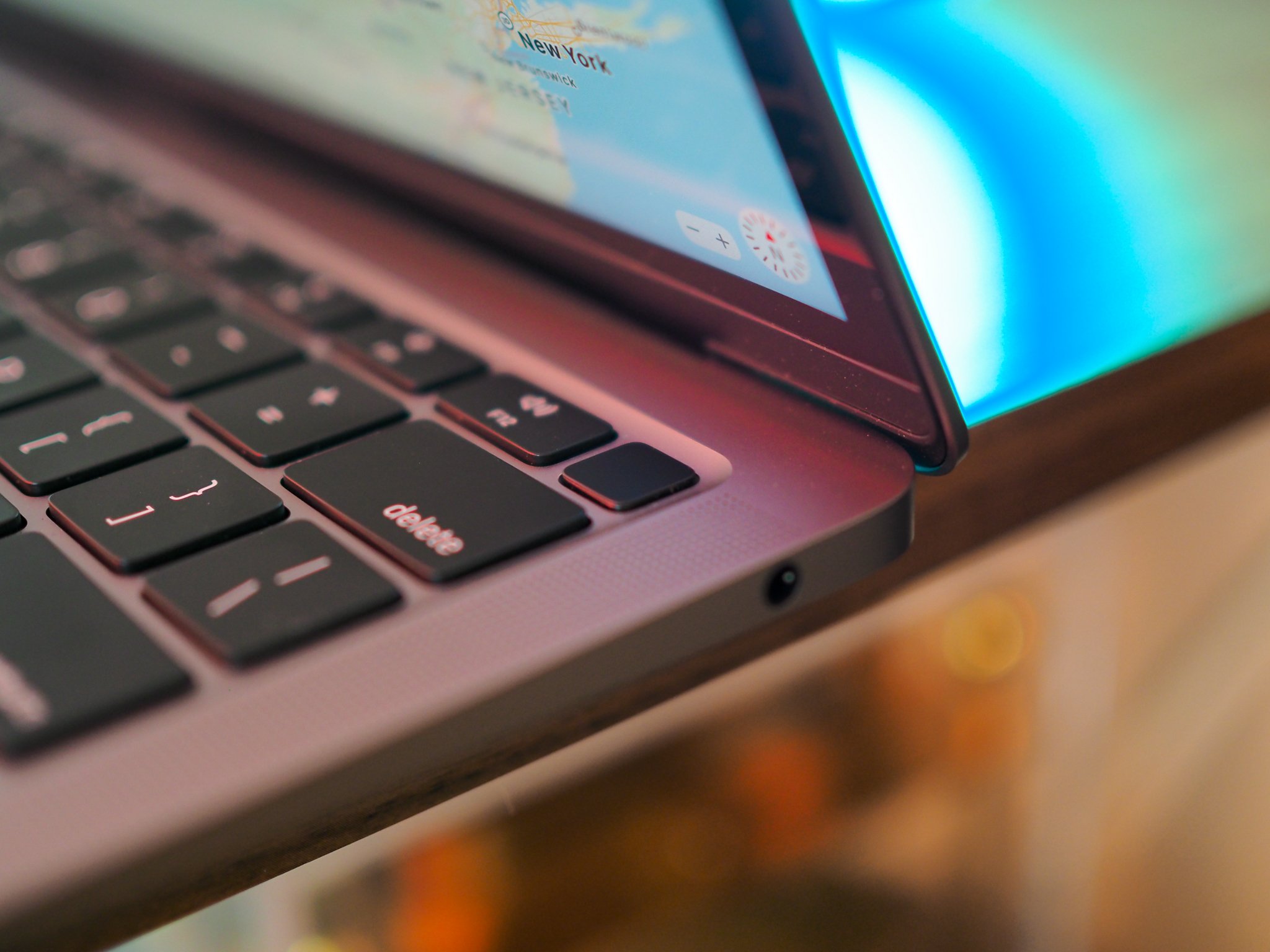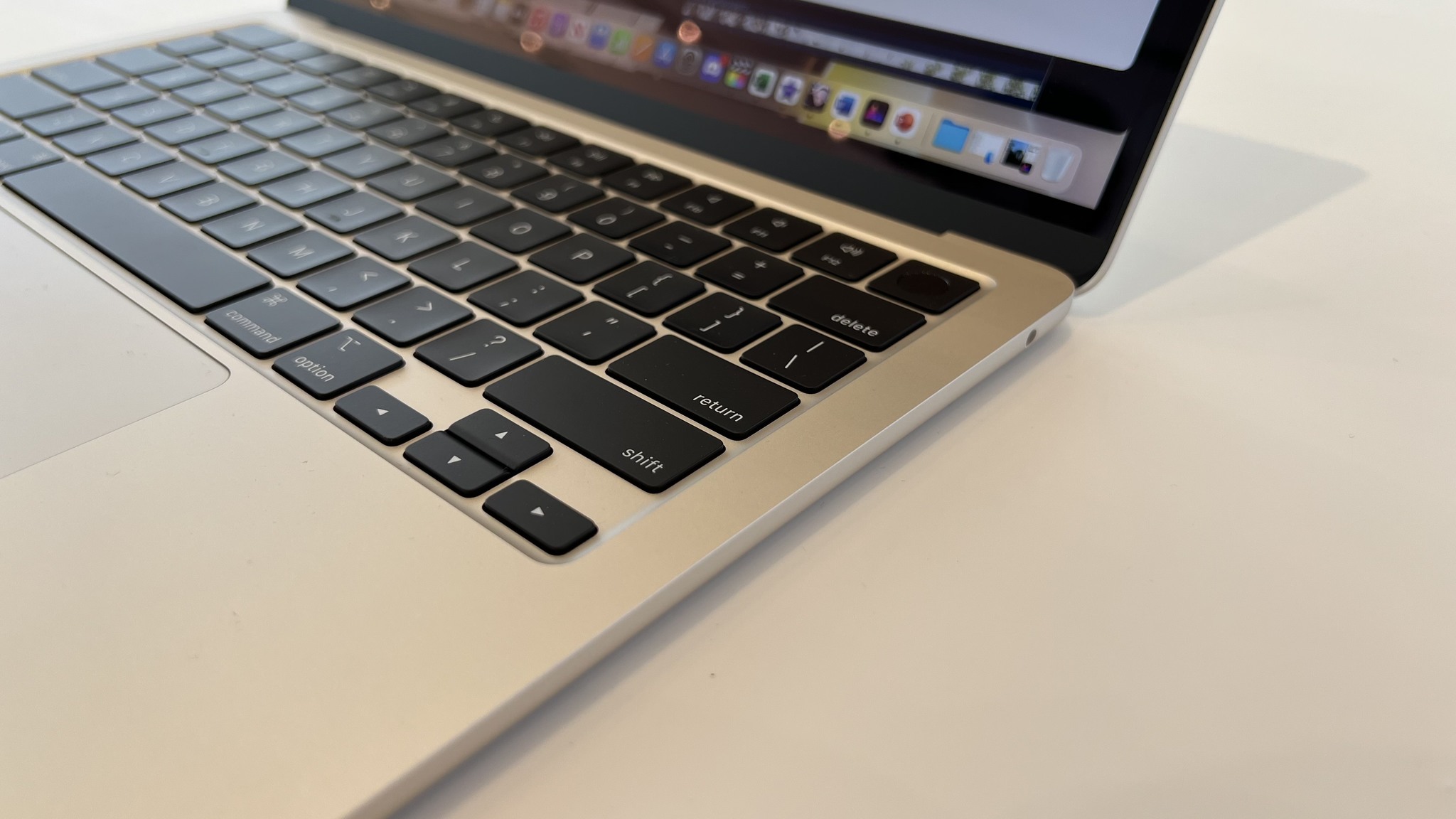A 12-inch Macbook makes sense, but only on one condition

iMore offers spot-on advice and guidance from our team of experts, with decades of Apple device experience to lean on. Learn more with iMore!
You are now subscribed
Your newsletter sign-up was successful
When the 12-inch MacBook first rolled off the production line and into Apple stores in June 2015 it flew off the shelves. Despite having a 1.1Ghz Intel Core processor that couldn't take the skin off a rice pudding, this woefully underpowered wonder proved popular. That's thanks to its small form factor and a Retina display, as well as its rather revolutionary Force Touch trackpad, and an all-new Butterfly keyboard… which we don't need to talk about.
Apple discontinued the MacBook in July 2019 after trotting out two more updates. Fast-forward to 2022, and rumors of a mythical 12-inch MacBook have returned. When I first heard the rumblings I was skeptical. As popular and nifty as the old MacBook was, a tiny form-factor computer leaves a lot to be desired and fitting so much into a small space always leads to compromise. The old MacBook had a potato for a webcam, terrible cooling, and, as noted, the Butterfly keyboard Apple was forced to adopt was one of the company's biggest missteps in recent memory. Did I mention it was underpowered?
Yet the old MacBook broke the mold in several ways, and many MacBook features we now take for granted, like Force Touch and USB-C were birthed in the MacBook. So I'll bite and fully invest myself in the latest 12-inch MacBook rumors. Here's why a 12-inch MacBook could be great – provided Apple doesn't miss one vital ingredient…
Apple's rumored 12-inch MacBook
So what are the rumors exactly? Mark Gurman reported last week that Apple "has begun work on a new 12-inch laptop" that could be released at the end of next year or even in 2024. According to Gurman, the MacBook could either be a low-end device, or perhaps a MacBook Pro.
With the advent of Apple silicon and the demands of Apple's more-pro-than-ever MacBook lineup, as far as I'm concerned, there's only one approach for Apple that would make sense, one condition with which I'd like to see it added to the range. Apple's 12-inch MacBook of the future must be the lightest, thinnest, and most power-efficient Mac the company has ever created – and that's even taking into account the new M2 MacBook Air.
Thanks to Apple silicon, Apple can now do more with less. It's putting out more power than ever before in its MacBooks, all while using less juice than ever. A couple of tweaks might have made the old 12-inch MacBooks more usable, but at the end of the day it was held back by its paltry Intel M-core processor, a limitation Apple silicon should easily help overcome.
Indeed, Apple is already using its M1 chip without cooling in the MacBook Air and has just added even more beef with the M2 processor. Apple's webcam technology is also a lot better now, and a new Continuity Camera feature in macOS Ventura means that the best webcam for Mac is now an iPhone. Apple has also eschewed the wedge-like design of its old MacBook and MacBook Air models in favor of more square chassis, which will give the company plenty more internal real estate to get the job done under the hood when it comes to both battery life and storage.
iMore offers spot-on advice and guidance from our team of experts, with decades of Apple device experience to lean on. Learn more with iMore!
No more Pros, please

Not only does a 12-inch MacBook make sense as a lightweight and ultra-efficient device thanks to Apple silicon, but also in filling the gaps in the company's laptop range more generally. But pushing a smaller MacBook into the Pro lineup, for instance, doesn't make much sense to me.
As one MacPaw developer told me on Twitter, a MacBook Pro at that size would be "way too small for professional usage", with their preference of screen size "at least" 13-inches. Keep in mind that the MacBook Pro line is usually aimed at those with creative workflows, where screen real estate is a premium they're willing to pay for.
It's worth noting that not everyone agrees with reports of a new 12-inch MacBook Pro. Prolific display analyst and leaker Ross Young of DSCC said he was "skeptical" of the claims, noting that it didn't fit with Apple's strategy of notebooks starting at 13-inches and that supply chain companies weren't aware of any such project.
Not only do I agree that a 12-inch MacBook Pro would likely be way too limited in terms of screen real-estate, but the limited internal space would also preclude battery life and storage, the former under more stress thanks to the power draw of Apple's more 'Pro' Apple silicon chips, its Max and Pro versions.
Apple also has a very strong current lineup of MacBook Pro models;, a handy entry-level 13-inch model, and powerful MacBook Pro models in 14-inch and 16-inch sizes. The only way a more 'Pro' 12-inch MacBook would make any sense would be in place of that 13-inch model, but as discussed that seems like just not quite enough screen to get 'Pro' things done. Not to mention that the price of such a device would very likely have folks questioning why they wouldn't just buy the MacBook Air instead, especially if whatever Apple is touting in 2023/24 is as good as its most recent model.
Gurman reports that Apple also has a 15-inch model in the works somewhere, which begs the question as to whether the MacBook lineup is going to get even more confusing and crowded in the future. On the flip side, having more models to suit more people can only be a good thing in my opinion. Not only is Apple reportedly making smaller MacBooks, but it's also planning to make bigger iPads too, with a 14-inch iPad Pro reportedly being tested for a release as early as this year.
I'm all for a 12-inch MacBook Pro, but I hope Apple recognizes that the success of a future device of that nature will hinge on the same features that made its old 12-inch model great: portability, silence, power efficiency, and a great display. Also, no butterfly keyboards, please.

Stephen Warwick has written about Apple for five years at iMore and previously elsewhere. He covers all of iMore's latest breaking news regarding all of Apple's products and services, both hardware and software. Stephen has interviewed industry experts in a range of fields including finance, litigation, security, and more. He also specializes in curating and reviewing audio hardware and has experience beyond journalism in sound engineering, production, and design.
Before becoming a writer Stephen studied Ancient History at University and also worked at Apple for more than two years. Stephen is also a host on the iMore show, a weekly podcast recorded live that discusses the latest in breaking Apple news, as well as featuring fun trivia about all things Apple. Follow him on Twitter @stephenwarwick9
